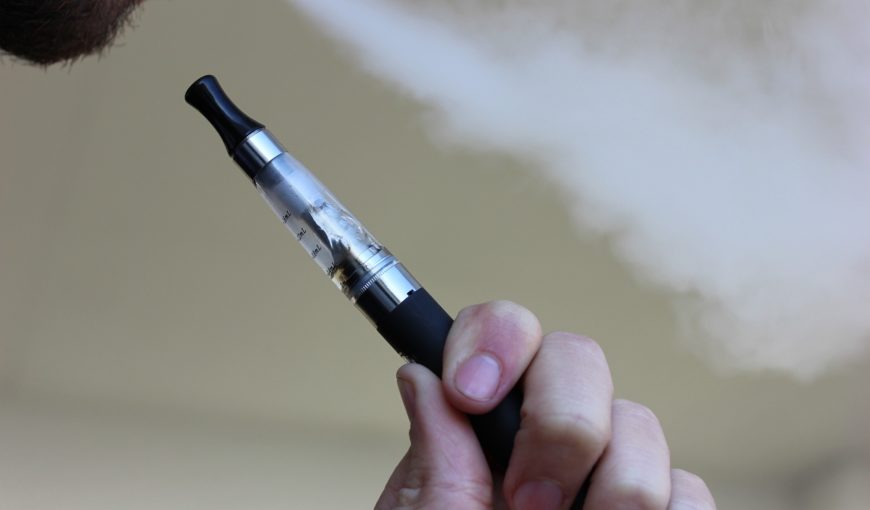Vaping Products Dangerous to Pets

There aren’t many studies on the dangers of vaping. Preliminary studies have found that vapers have increased mouth sores that do not heal and increased chronic bronchitis. Some of the non-toxic ingredients in e-cigarette liquid or “juice” can become toxic when heated by the e-cigarette coil.
E-cigarettes are perceived as a safe alternative for adults who smoke and are often described as a way for smokers to quit smoking. While this sounds like a good thing, we also know that e-cigarette use has grown 900 percent among high-school students who have never smoked, who see vaping as a “safe” activity.
As smokers transition from traditional tobacco cigarettes to e-cigarettes, there has been a steady decrease in the number of incidents of nicotine poisoning in animals from ingesting traditional cigarettes, while poisonings involving e-cigarettes have increased.
The poisonings from e-cigarette liquid tend to be much more severe and carry a greater risk of death because the concentration of nicotine in e-cigarette liquid can be much larger than a regular tobacco cigarette. Liquid nicotine is absorbed by the body much faster and is more completely absorbed. A very small amount of this liquid is enough to produce poisoning. The smaller the animal, the less nicotine is required to cause poisoning or death.
In addition to nicotine, some of the other ingredients in e-cigarette liquid can be dangerous. Propylene glycol, a common ingredient in many products can cause Heinz body anemia in cats.
Animals are much more likely to be attracted to e-liquids because of the pleasant fruity flavors of these products. Even though e-cigarette liquids have child-proof closures, the containers are not enough to stop even a small dog from chewing them.
The liquids associated with electronic smoking devices aren’t the only danger. The batteries associated with them can explode if the device is chewed when an animal tries to access the scented liquid inside, which can result in burns to the mouth. If the batteries are swallowed, the stomach acid can eat through the battery case, leading to poisoning from the battery contents.
Both dogs and cats seem to be attracted to the vapor. Dogs like the sweet scent, and cats will bat at the plumes. Do not allow animals to play in the vapor.
To prevent accidental poisoning, keep all smoking and vaping materials away from pets. Keep chargers and batteries where animals have no access to them. Use extreme care when refilling vaping devices and clean up any spills promptly and thoroughly. Teens who may be using these devices without their parents’ knowledge may keep or hide them where animals can get to them. Guests who use vaping devices should be warned to keep them away from pets.
Symptoms of nicotine poisoning include: vomiting, diarrhea, excessive salivation, seizures, tremors, collapse, constricted pupils, increased pulse rated, increased temperature, lethargy and incoordination. Not every pet exhibits every symptom
If your pet does come into contact with any product containing nicotine, medical attention is needed IMMEDIATELY. Call the hospital during regular business hours or go to a 24-hour facility right away if the hospital is closed.





